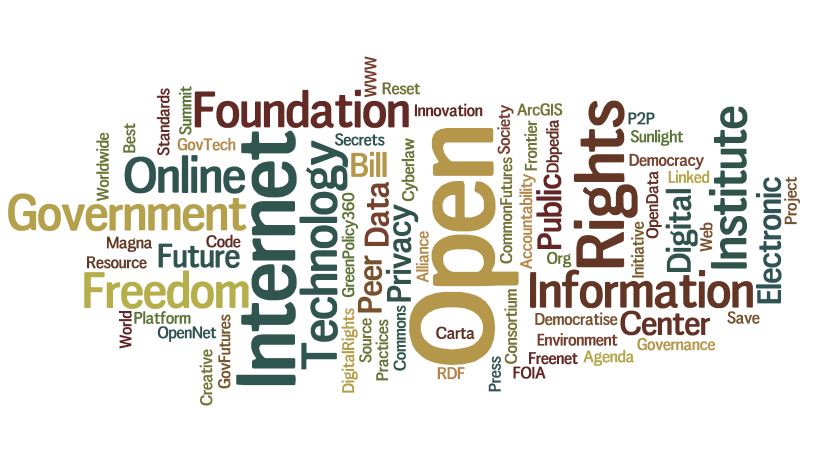An Internet Snapshot - March 2018: Difference between revisions
Siterunner (talk | contribs) No edit summary |
Siterunner (talk | contribs) No edit summary |
||
| Line 65: | Line 65: | ||
········································································································· | |||
| Line 71: | Line 71: | ||
[https://www.greenpolicy360.net/w/GreenPolicy360-eOS#Digital_Citizen.2C_Digital_Rights_Movement '''''Visit the GreenPolicy Digital GreenLinks Network'''''] | [https://www.greenpolicy360.net/w/GreenPolicy360-eOS#Digital_Citizen.2C_Digital_Rights_Movement '''''Visit the GreenPolicy Digital GreenLinks Network'''''] | ||
[[File:Digital Rights Tag Cloud from GreenPolicy360.net.png]] | |||
○ | ○ | ||
Revision as of 11:38, 13 March 2018
Rising Threats to the Global Internet
March 2018 / Quick Snapshot
Platform power is crushing the web, warns Berners-Lee
On the 29th birthday of the world wide web, its inventor, Sir Tim Berners-Lee, has sounded a fresh warning about threats to the web as a force for good, adding his voice to growing concerns about big tech’s impact on competition and society.
The web’s creator argues that the “powerful weight of a few dominant” tech platforms is having a deleterious impact by concentrating power in the hands of gatekeepers that gain “control over which ideas and opinions are seen and shared”.
His suggested fix is socially minded regulation, so he’s also lending his clout to calls for big tech to be ruled.
“These dominant platforms are able to lock in their position by creating barriers for competitors,” Berners-Lee writes in an open letter published today on the Web Foundation’s website. “They acquire startup challengers, buy up new innovations and hire the industry’s top talent. Add to this the competitive advantage that their user data gives them and we can expect the next 20 years to be far less innovative than the last.”
The concentration of power in the hands of a few mega platforms is also the source of the current fake news crisis, in Berners-Lee’s view, because he says platform power has made it possible for people to “weaponise the web at scale” — echoing comments made by the UK prime minister last year when she called out Russia for planting fakes online to try to disrupt elections.
···················································································
Politics, Databases, Campaign Targeting at Work
What's the "Spinternet"?
You Want What?
Who Am I (and How Am I Motivated to Act)
Modern Marketing Techniques
Databases and Analytics; One-to-One Targeting; Calls-to-Action;
Digital Platforms: Monopoly Powers
How to Reach and Move Target Audiences'
Identify Them, Influence Them, Call Them to Act
Today’s technologists work at for-profit businesses, doing what for-profit businesses do in America—maximizing shareholder profits by acquiring functional control of markets, as well as intimate details of our lives. Big Tech makes aspects of daily life more convenient (if more fraught), but that’s not the same as making the world a better place.
·········································································································
Digital Citizen, Digital Rights Movement at GreenPolicy360
Visit the GreenPolicy Digital GreenLinks Network
○
